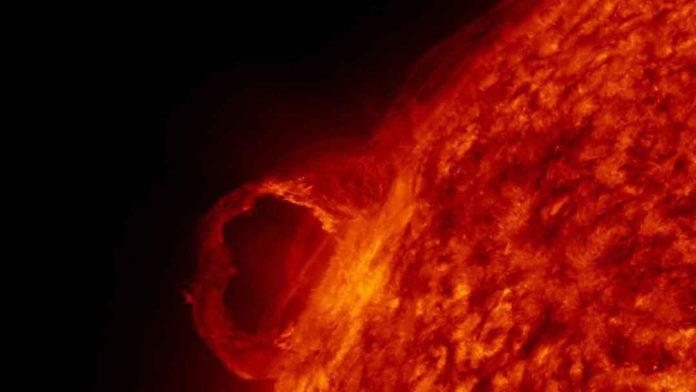Researchers are proposing an ingenious yet so far unproven approach to tackle climate change. They are planning to spray sun-dimming chemicals into the Earth’s atmosphere.
In a study conducted by the Harvard and Yale Universities, scientists used a technique called stratospheric aerosol injection (SAI), which is expected to reduce the rate of global warming in half. This technique incorporates spraying a lot of sulfate particles into the Earth’s lower stratosphere at altitudes as high as 12 miles.
For spraying, a special kind of aircraft, balloons or large naval-style guns will be used. Though, the technology is still hypothetical with no existing aircraft suitable for adaptation.
Scientists noted, “Developing a new, purpose-built tanker with substantial payload capabilities would neither be technologically difficult nor prohibitively expensive. The total cost of launching a hypothetical system in 15 years’ time at around $3.5 billion, with running costs of $2.25 billion a year over a 15-year period.”
“There will be also the chances of potential risks including coordination between multiple countries in both hemispheres would be required, and SAI techniques could jeopardize crop yields, lead to droughts or cause extreme weather.”
Philippe Thalmann from the École Polytechnique Fédérale de Lausanne, an expert in the economics of climate change told CNN, “From the point of view of climate economics, solar radiation management is still a much worse solution than greenhouse gas emissions: more costly and much more risky over the long run.”
David Archer from the department of geophysical science at the University of Chicago said, “The problem with engineering climate in this way is that it’s only a temporary Band-Aid covering a problem that will persist essentially forever, actually hundreds of thousands of years for fossil fuel CO2 to finally go away naturally.”
“It will be tempting to continue to procrastinate on cleaning up our energy system, but we’d be leaving the planet on a form of life-support. If a future generation failed to pay their climate bill they would get all of our warmings all at once.”
The study is published in the journal Environmental Research Letters.
